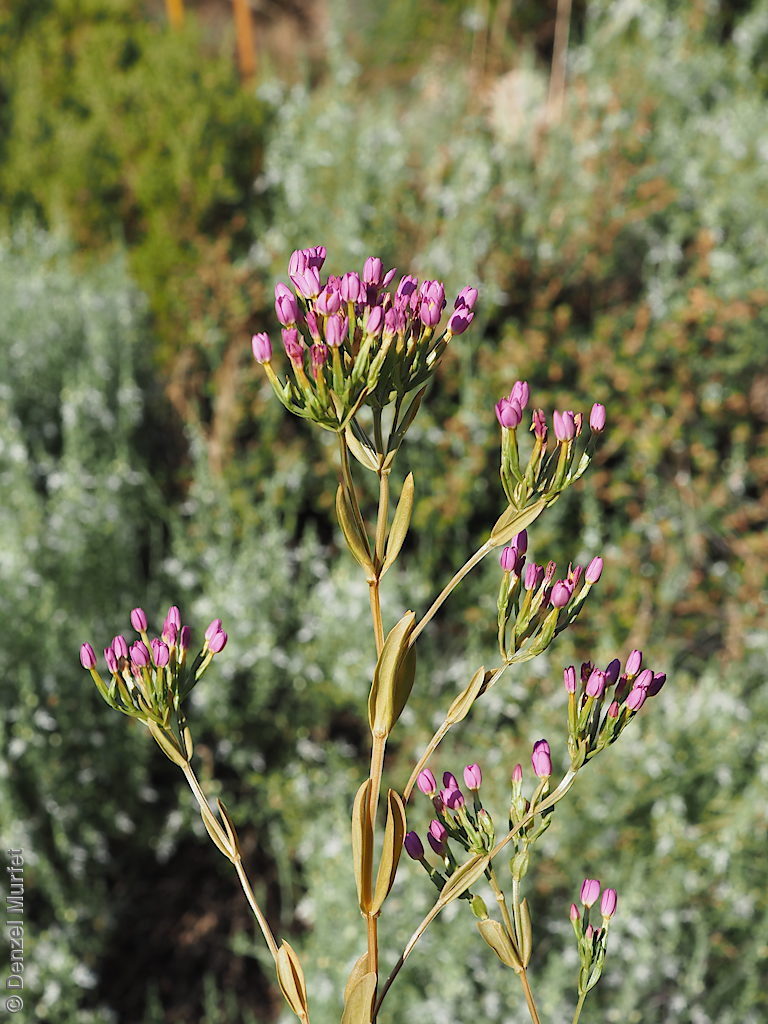
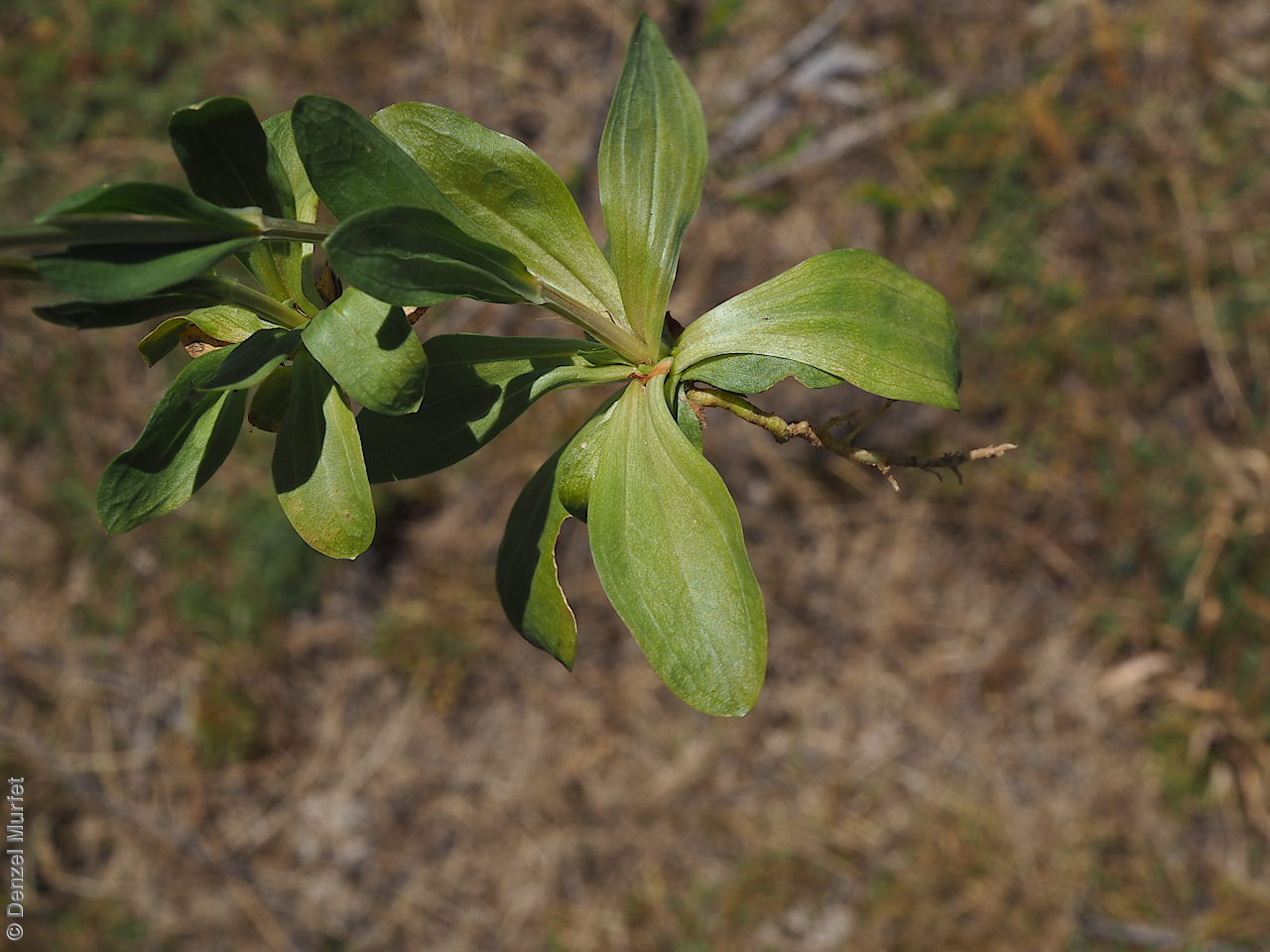
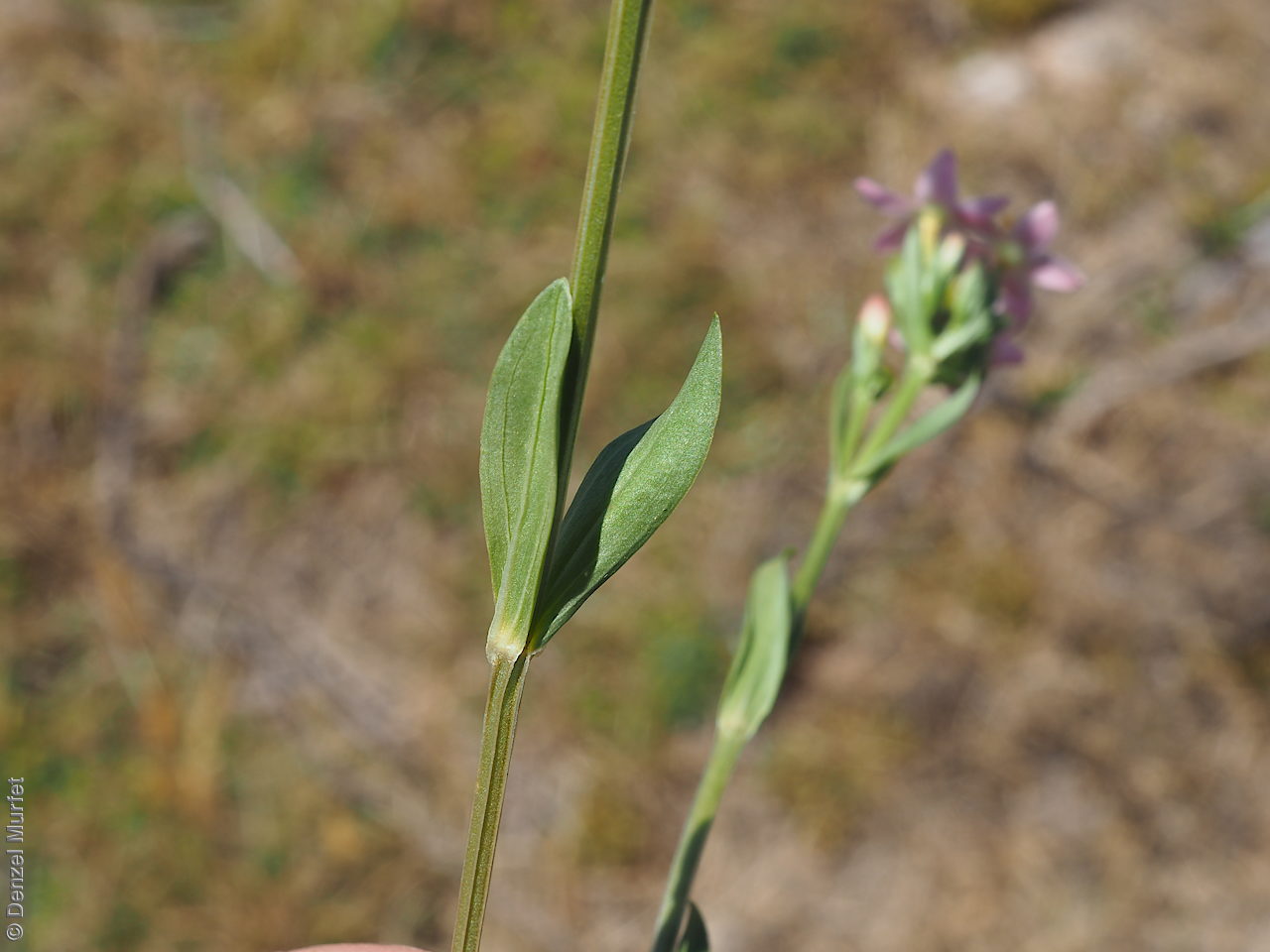
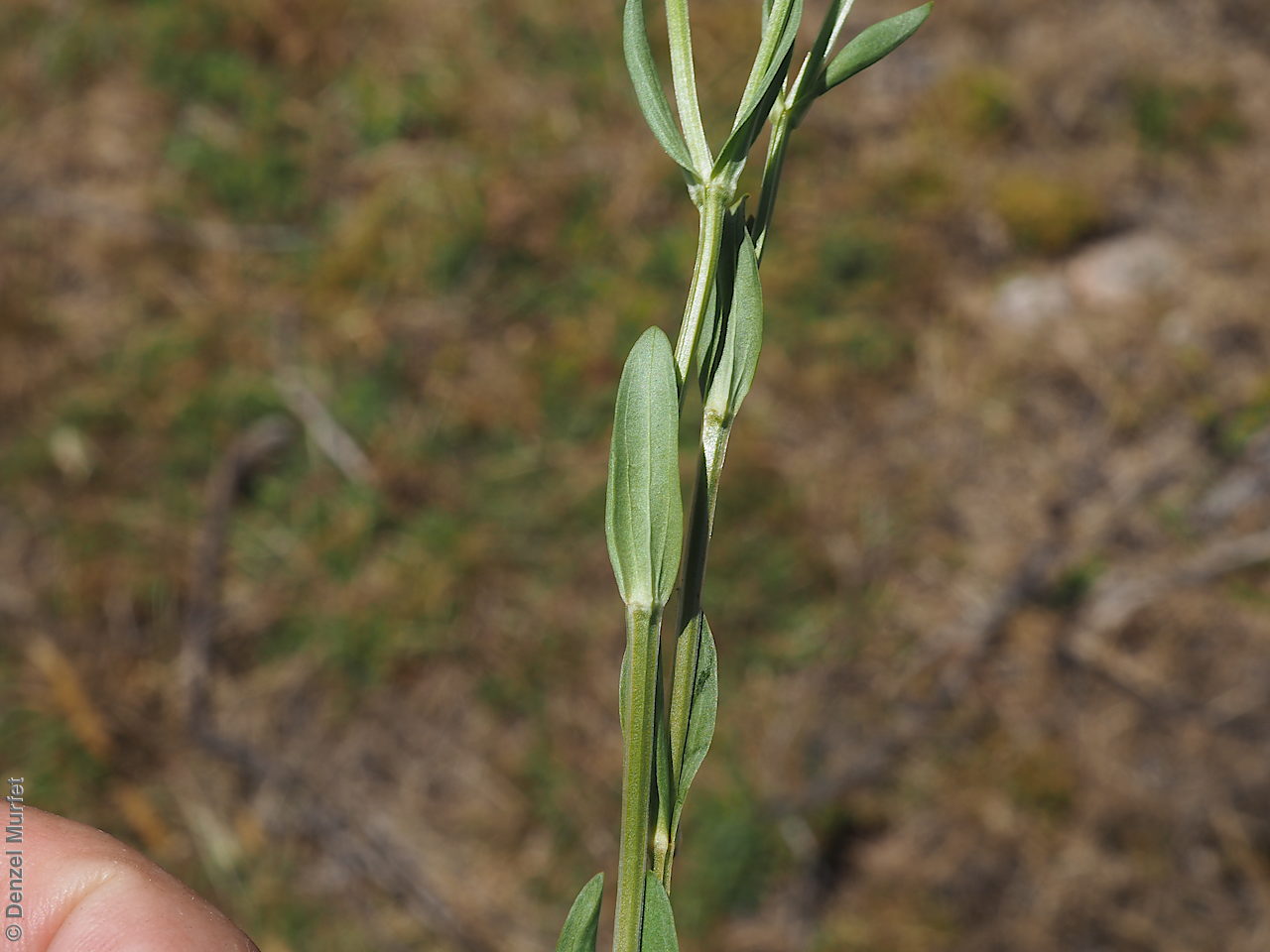
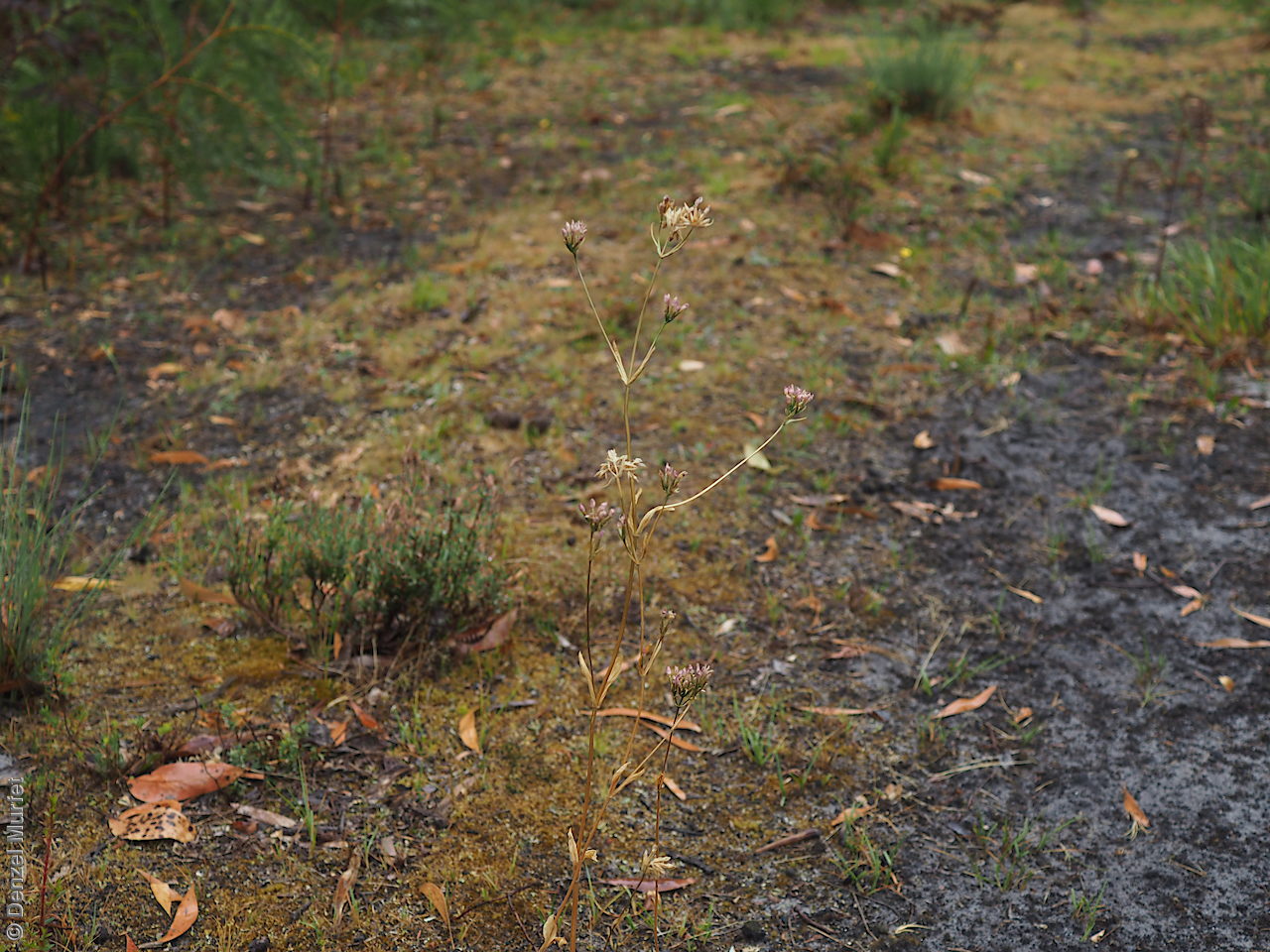
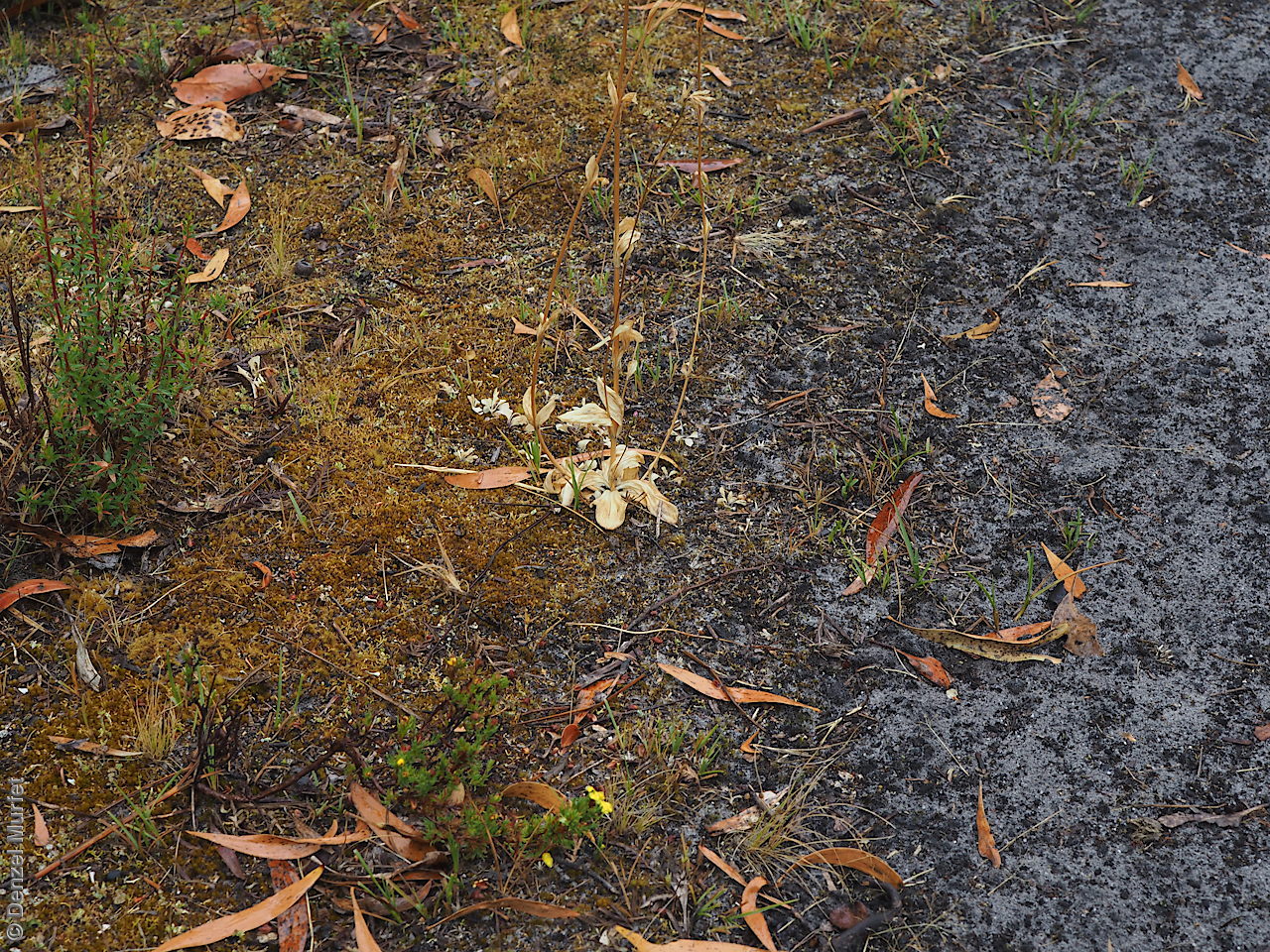
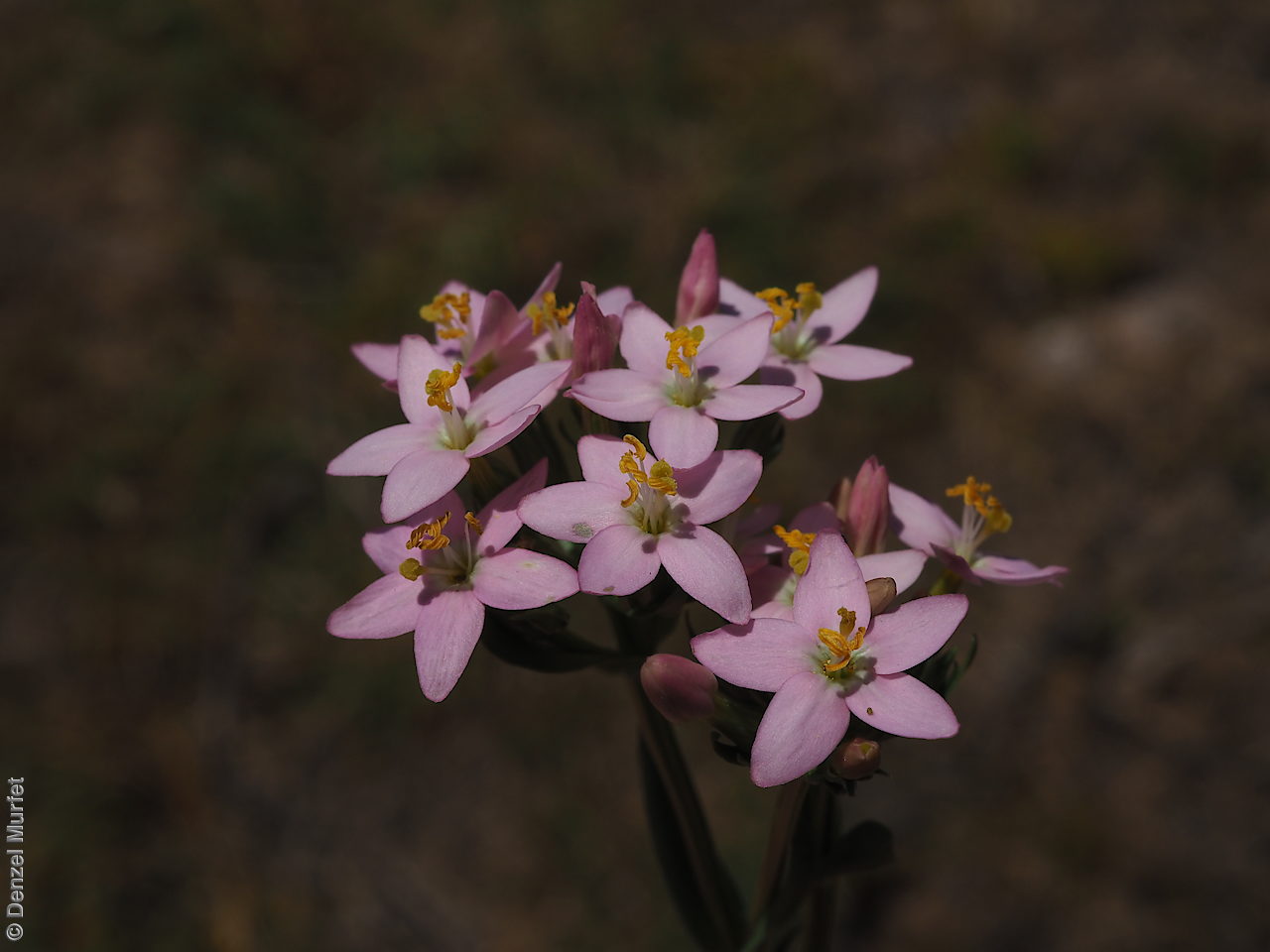
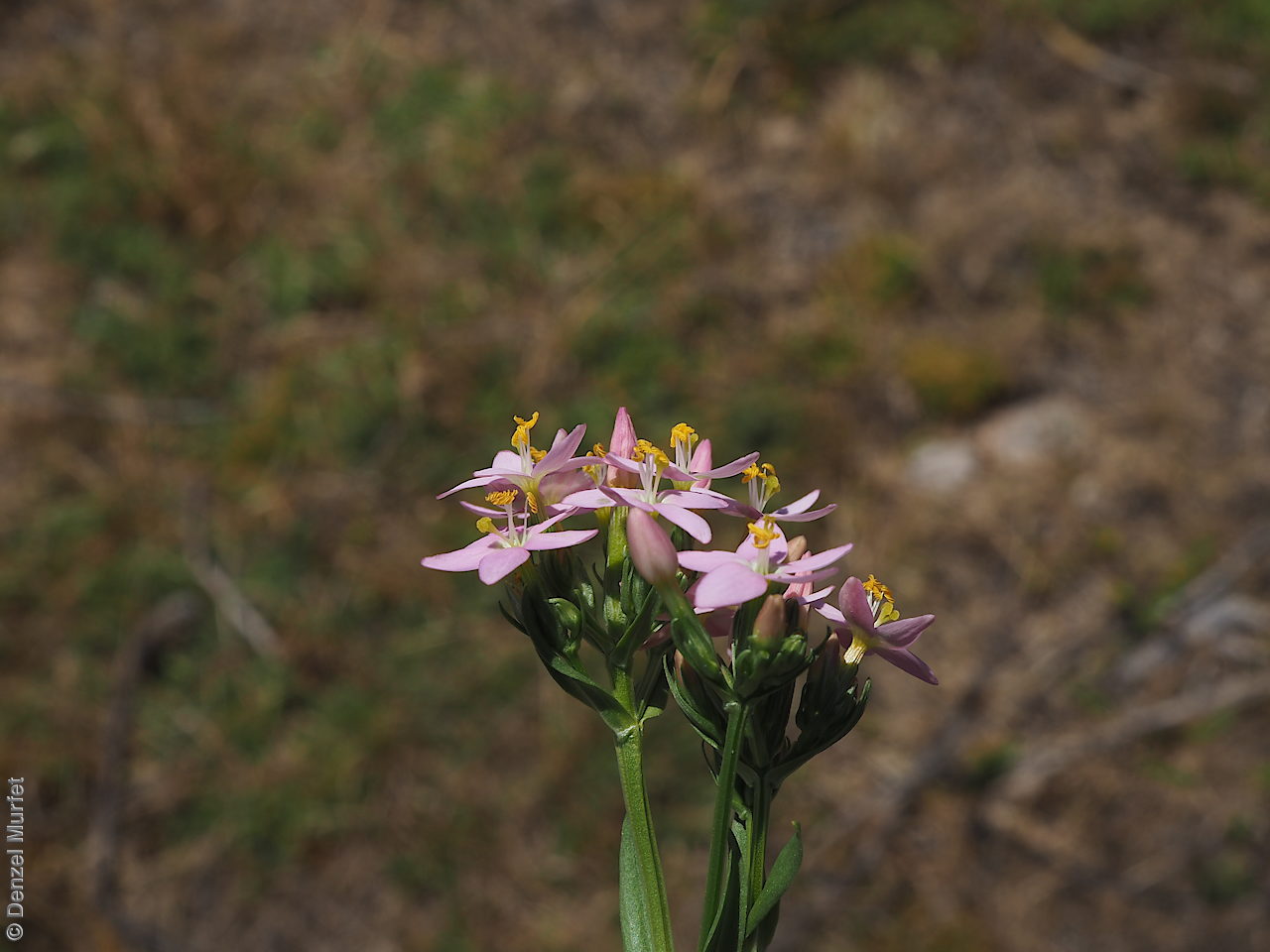
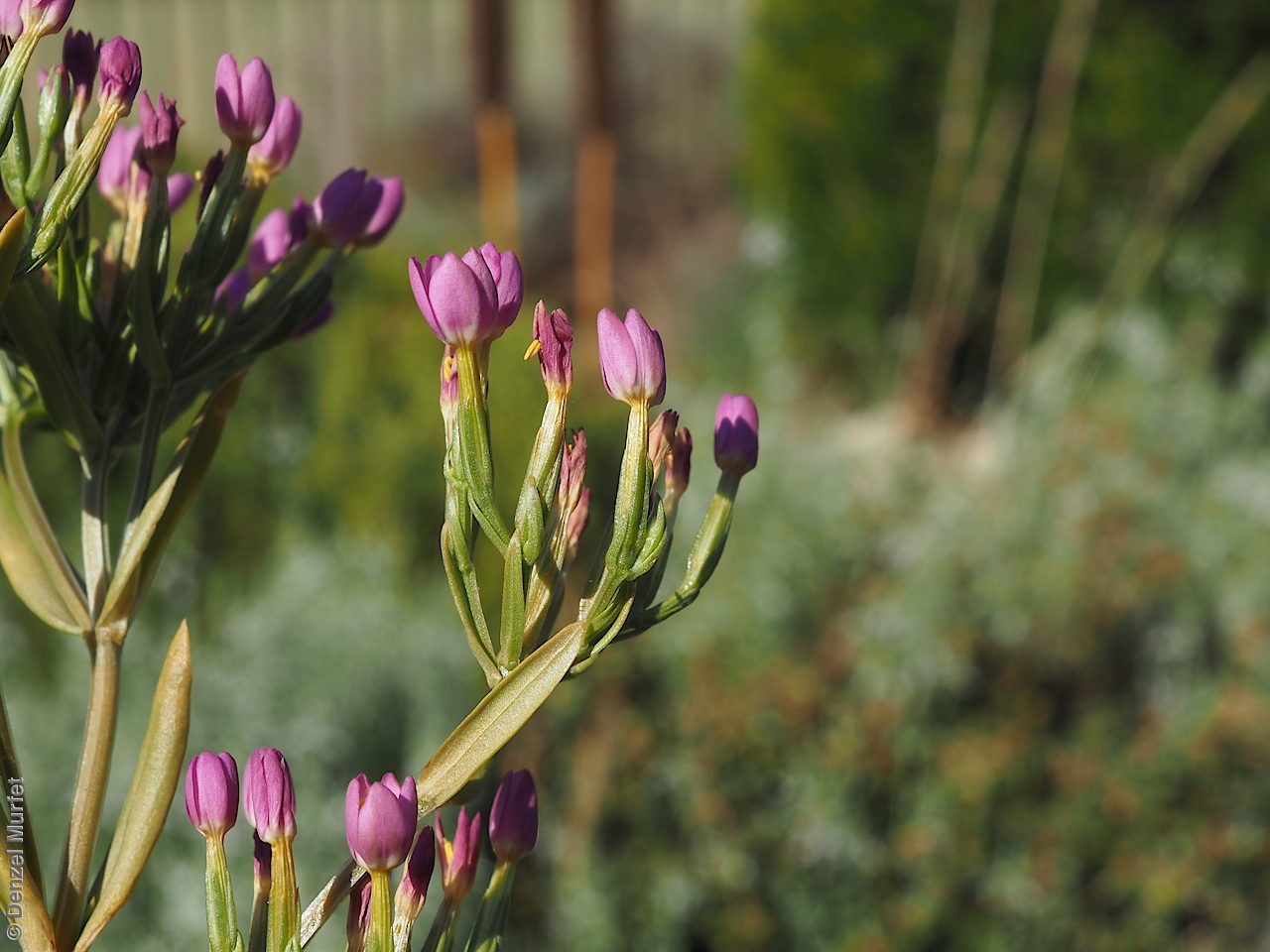
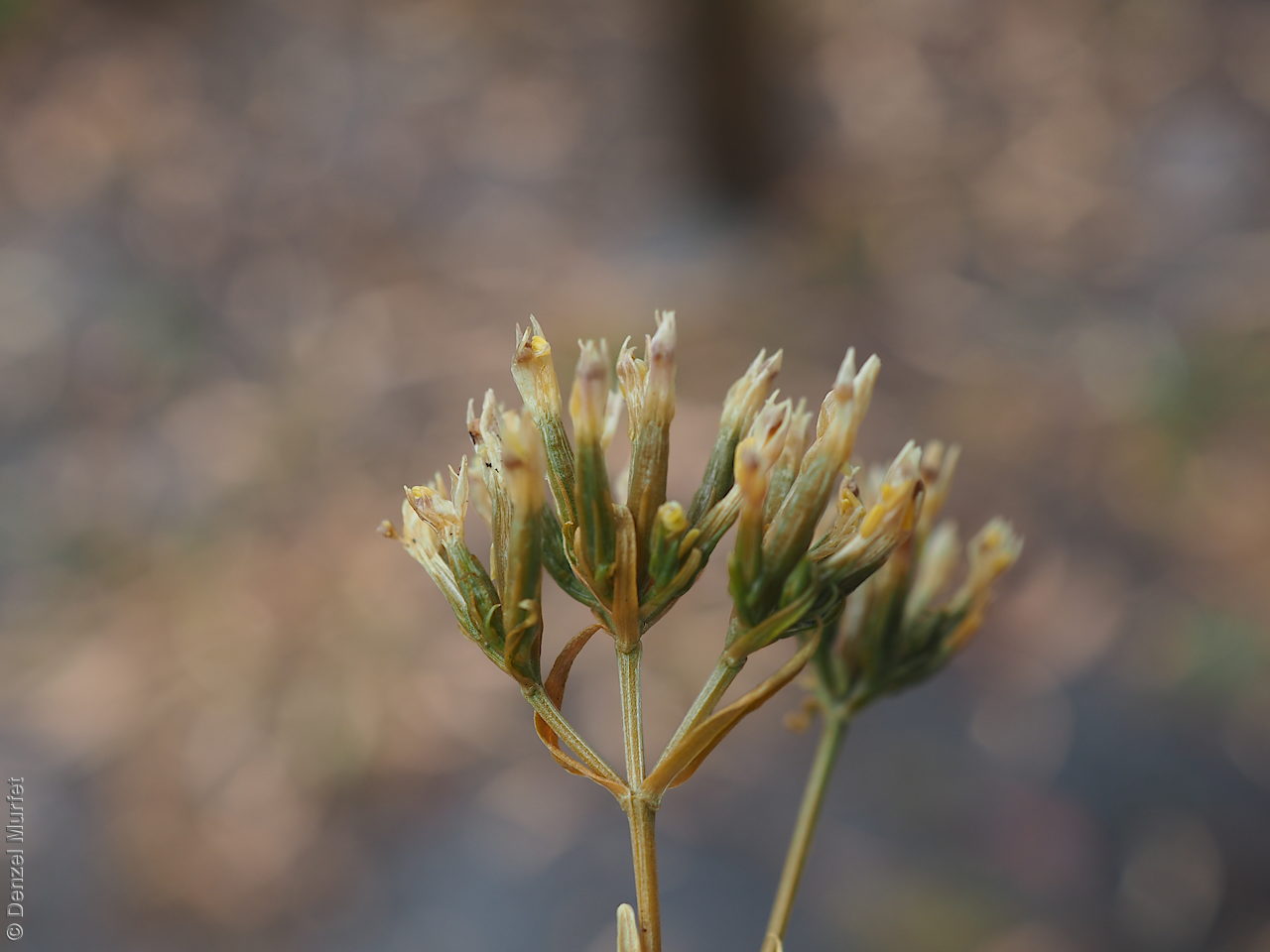
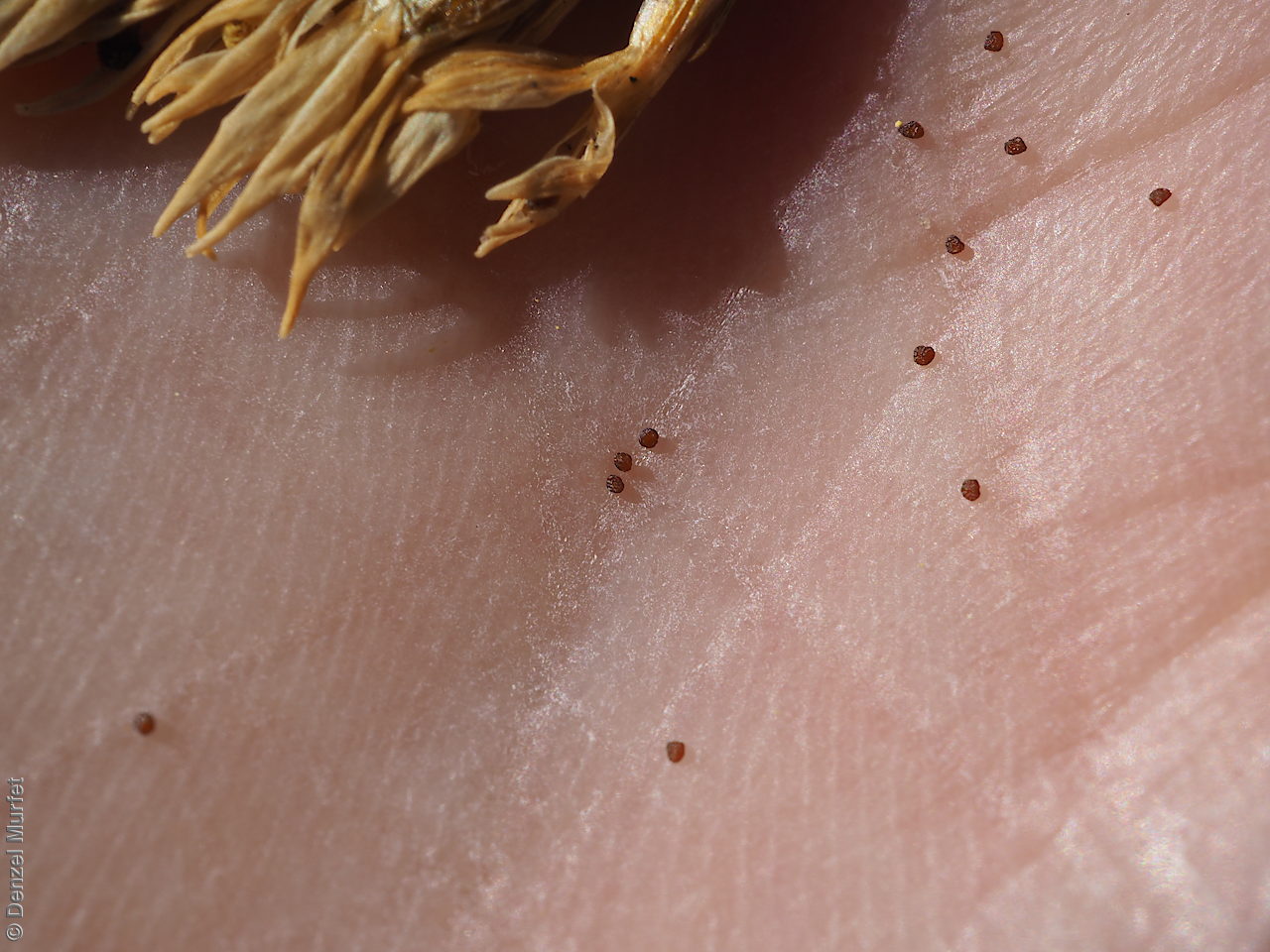
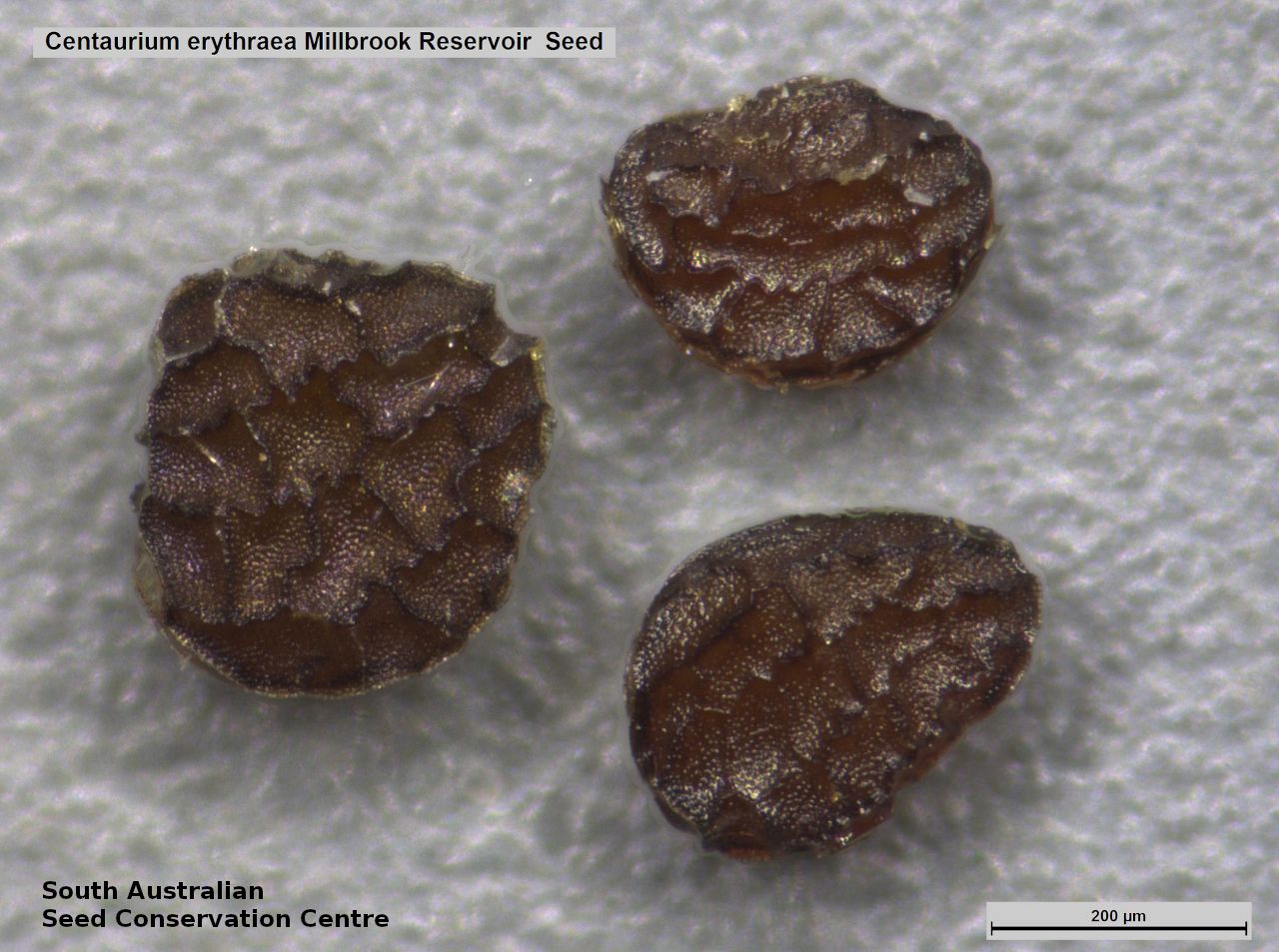


Botanical art
Prior names
Centaurium littorale, partly
Erythraea centaurium
Centaurium minus
Etymology
Centaurium is a Greek name for one of the species in the genus and possibly named after the Centaur Chiron, who according to mythology, discovered the medicinal uses of the plant that came to be known as Centaury. Erythraea from the Greek 'erythros' meaning red; referring to the colour of the flowers.
Distribution and status
An introduced species native to Europe, the Mediterranean region and western Asia and recorded on the southern Eyre Peninsula, Kangaroo Island, Mount Lofty Ranges and the South-east in South Australia. Also recorded from all states except for the Northern Territory. Introduced. Common weed in South Australia. Common weed in the other states.
Herbarium regions: Nullarbor, Flinders Ranges, Eyre Peninsula, Southern Lofty, Kangaroo Island, South Eastern, Green Adelaide
NRM regions: Adelaide and Mount Lofty Ranges, Eyre Peninsula, Kangaroo Island, Northern and Yorke, South East
AVH map: SA distribution map (external link)
Plant description
Erect annual or biennial herb to 35 cm tall, growing from a small basal rosette and usually have a single quadrangular main stem. Leaves are triangular and arranged oppositely on the stem, pale green colour, smooth and shiny. Inflorescence a dense terminal cluster with pale rose-pink flowers. Flowering between October and February. Fruits are light brown papery cylindrical capsules to 8 mm long, with numerous seeds. Seeds are tiny dark brown ovoid seed to 0.4 mm long and 0.3 mm wide, with a reticulate surface texture. Seed embryo type is spatulate under-developed.
Seed collection and propagation
Collect seeds between December and April. Collect mature capsules as they dry off and turn brown. They should contain hard brown seeds inside. Place the capsules in a tray for a week. Then rub the capsules with your fingers to dislodge all the seeds. Use a sieve to separate the unwanted material. Be careful as the seeds are very small. Store the seeds with a desiccant such as dried silica beads or dry rice, in an air tight container in a cool and dry place.